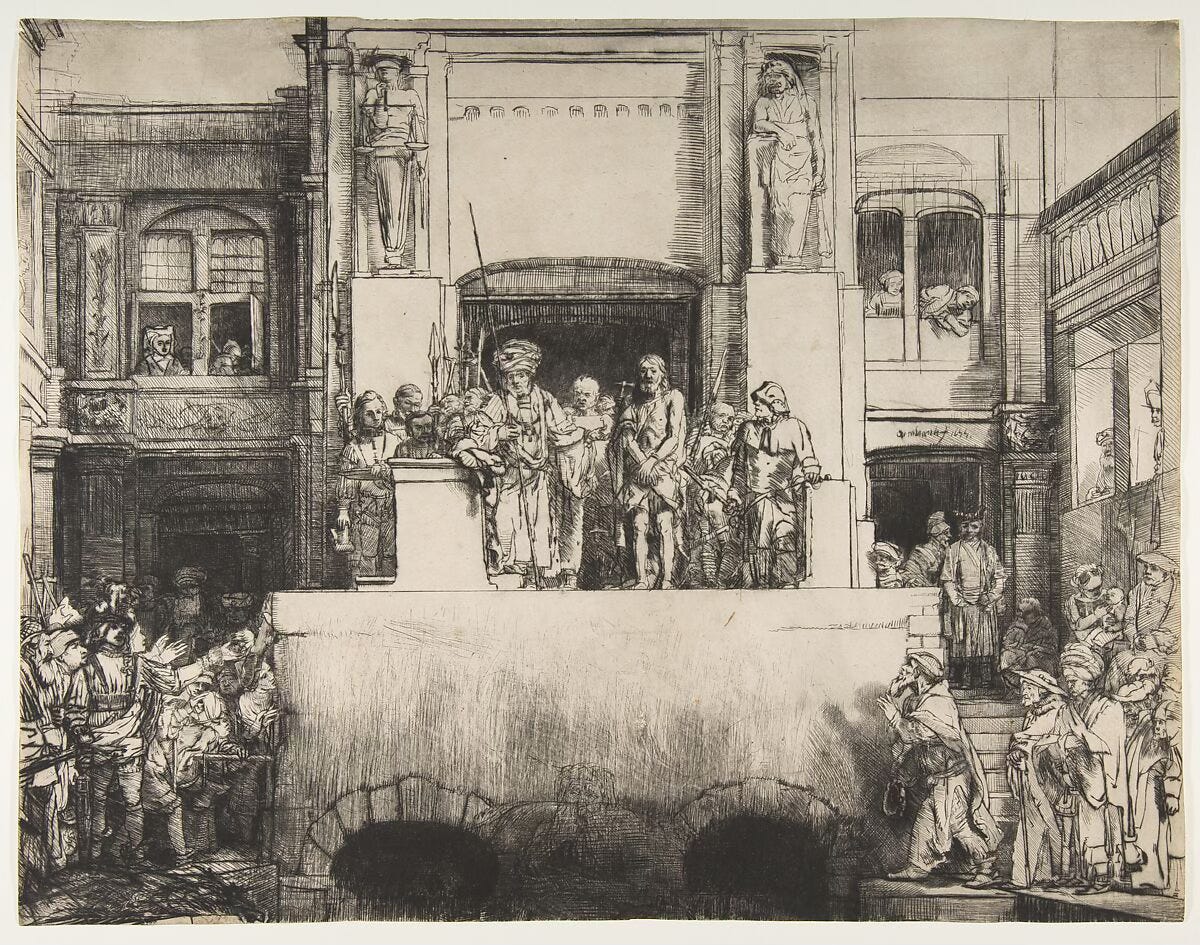Barabbas or Jesus? The Choice We Still Face
How the cross and Palm Sunday confronts our assumptions and unmet expectations
Christ Presented to the People by Rembrandt 1655
You start following Jesus because something about Him captures your imagination.
He heals the sick. Speaks with authority. Tells you stories that flip your world upside down. He says, “My kingdom is not of this world,” but you don’t really know what that means. Then He tells you He’s going to suffer and die—and you think, That can’t be right. And in the days leading up to the crucifixion, you think to yourself, “This isn’t what I signed up for.”
Palm Sunday forces us to ask some uncomfortable questions.
The crowds that welcomed Jesus into Jerusalem with palm branches shouting “Hosanna!” were expecting a revolutionary. A warrior. A king who would overthrow Rome and establish power by force.
But instead, Jesus:
Rode in on a donkey, not a warhorse
Cleansed the temple, not the palace
Wept over the city, rather than conquering it
By the end of the week, the same city that shouted “Hosanna!” was shouting “Crucify him!” Why? Because Jesus refused to be the Messiah they wanted. And if we’re honest, we still struggle with this.
We want a Jesus who:
Affirms our politics
Shares our enemies
Wins our battles the way we want them won
But Jesus doesn’t come to take sides. He comes to take over—and He does it through a cross, not a sword.
At the trial before Pilate, the crowd is given a choice:
Barabbas—a violent revolutionary who fights for freedom with force,
or Jesus—the suffering servant who will bring freedom through sacrifice.
They chose Barabbas. And many still do.
This Sunday at City Church - Palm Sunday - we’re diving into the question that still confronts us:
Barabbas or Jesus?
Force or surrender?
Control or the cross?



